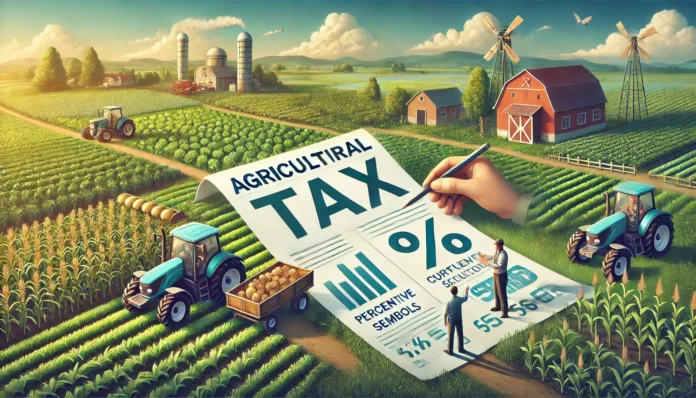The federal government is considering increasing taxes on agricultural inputs, including a potential doubling of the excise duty on fertilisers to 10% and a new 5% tax on pesticides, The Express Tribune reported, citing senior tax officials.
This move is part of the government’s broader strategy to meet its ambitious tax target of Rs14.3 trillion for the next fiscal year 2025-26. The agriculture sector, already facing significant challenges, could see further pressure as these critical inputs become more expensive.
Currently, the government charges a 5% Federal Excise Duty (FED) on fertiliser, which is set to be raised to 10%.
The government is also contemplating extending a similar tax to pesticides, with options under consideration to either match the 10% duty on both or introduce a 5% rate on pesticides. These proposals are designed to generate an additional Rs50 billion in revenue in the next fiscal year.
The government’s push for increased taxes on fertilisers and pesticides is part of its commitments to the International Monetary Fund (IMF), which has advised Pakistan to reduce distortions in the agricultural market. The IMF and government officials argue that excessive use of fertilisers is contributing to environmental damage and price volatility, which, in turn, hampers private sector activity and innovation.
Despite concerns from farmers, who have long criticised the rising cost of agricultural inputs, the government is determined to move forward with these plans as part of its agreement with the IMF.
In addition to the new taxes, the government plans to impose income tax on farmers for the first time, with rates reaching as high as 45% on income earned from January onwards.
This change follows Pakistan’s agreement with the IMF during negotiations for a $7 billion bailout package, where the government committed to eliminating preferential treatments and focusing on reducing market distortions.
Another key consideration in the budget is the super tax, which affects high-earning individuals and companies. While the business community has been advocating for its complete removal, the government is exploring a reduction of the super tax rate by 2%, lowering it from the current 10% to 8%.
However, any reduction will depend on the government’s ability to identify alternative revenue sources, as the super tax currently contributes significantly to the tax collection.
The revenue collection target for the upcoming fiscal year is set at Rs14.3 trillion, a 16% increase from the revised target for the current year.
The government is optimistic that this goal can be achieved without additional measures, although discussions with the IMF are set to take place from May 14, 2025, to finalise the tax measures needed to reach this target.




